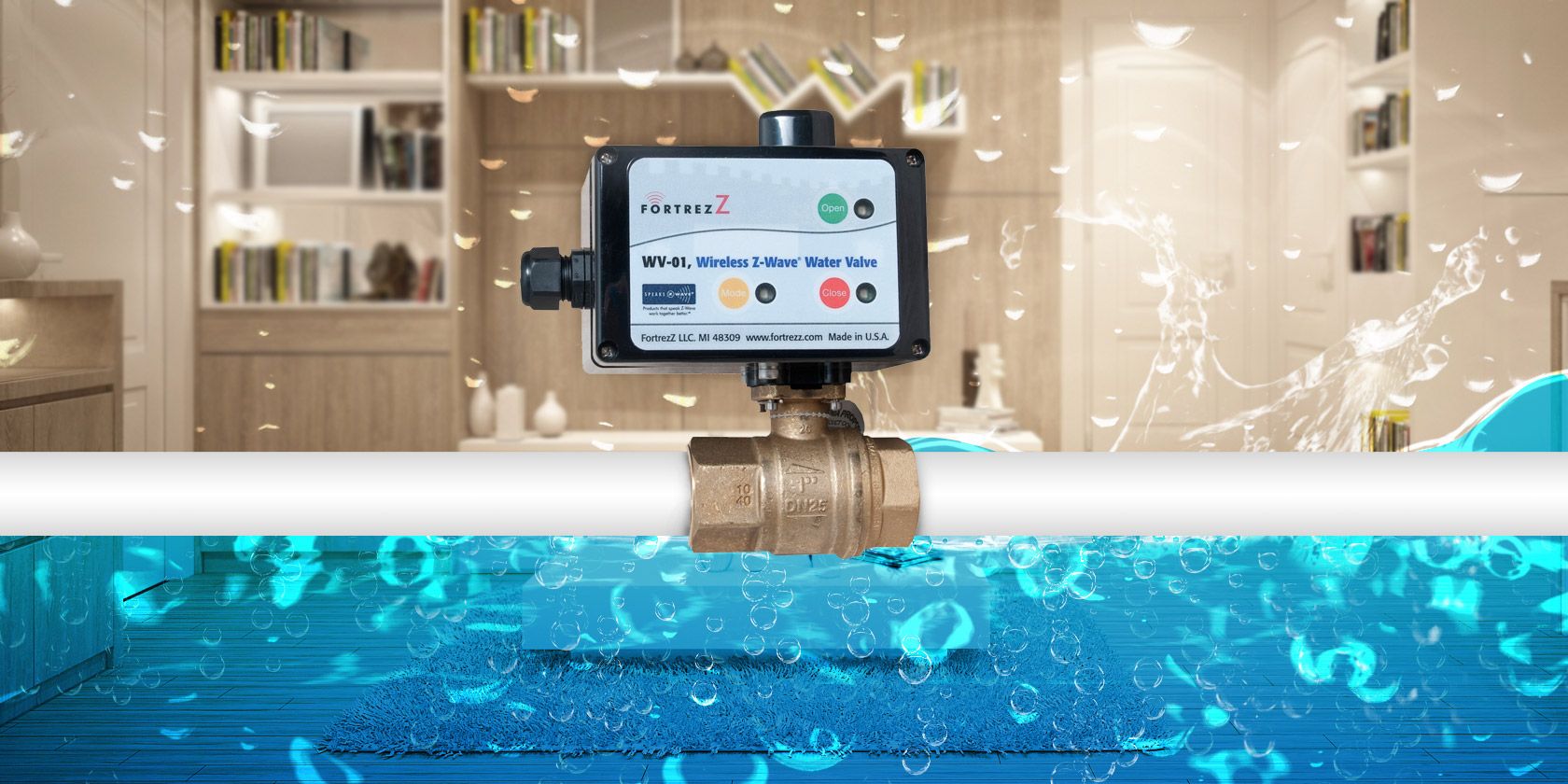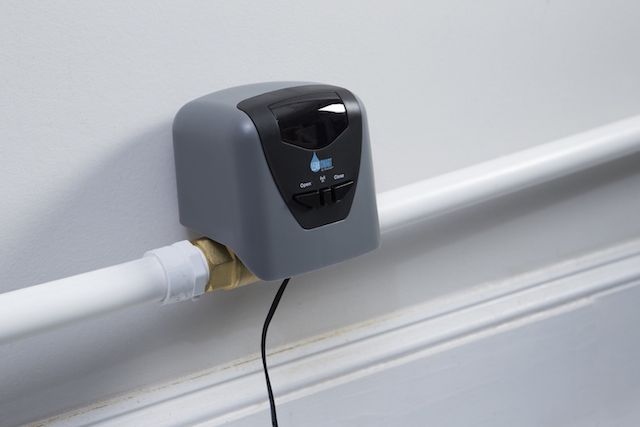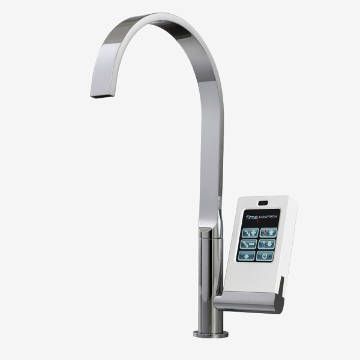When a water pipe bursts, you know you're in for a financial world of hurt.
Not only will your house be flooded, causing thousands of dollars of damage to your personal property, but you'll have to get a plumber in to fix or replace the defective pipe. You'll potentially face a heavy water bill too. It's expensive.
But what if you could prevent that by installing a single piece of equipment? I am, of course, talking about smart water valves.
What Are Smart Valves?
Smart valves are a relatively new innovation in smart home technology, which is why you might not have heard of them. The first one was released at the end of 2014 by the American DIY giant, Lowes. Since then, competing products have been released, but they do remain rather niche.
They come in two halves. The first is a sensor which detects water leakages. The other is a valve, which will immediately shut off the water supply when it detects trouble.
Some, like the Lowes Smart Valve, are especially clever, and will turn off the water supply when they think a leak could happen.
For example, many leaks occur when water in the pipes freeze and expand, causing them to crack. To mitigate against that, a number of smart valves will shut off the water supply when the indoor temperature drops below zero.
Another great advantage of smart valves is that they can connect over WiFi to central hubs, with some allowing users to remotely turn off their water supply through their phones. That's handy if you've set off on vacation, and forgot to turn off the water.
Of course, smart valves aren't the only aquatically-oriented smart gear. There are also smart faucets, which offer improved efficiency and safety compared to existing faucets.
So, what valves are available to buy? I decided to take a look at the market. Here's what I found.
The Smart Valve Market
Smart water valves are incredibly niche products. There isn't the same range of competition that exists elsewhere in the Smart Home industry. Despite that, there are a few products to choose from.
Salute Wireless Valve
We're going to start off at the absolute bargain-basement level, and take a look at the Salute Wireless Valve [Broken URL Removed], available for $49.99 on Amazon.
This can be attached to a gas or water valve, allowing the user to shut it off as they wish. It can be controlled through the included remote control, or via an Android application. Sadly, I wasn't able to find it on the Google Play Store, which leads me to question its existence. There's no mention of an iPhone app, either.
Worse, it doesn't include a sensor, which was a glaring omission. So, while it can't detect leaks as they happen, you can use it to turn your water off when you leave the house.
Reviews are mixed, too. Some are enthusiastic about it, and say it represents value for money. Others are damning about its build quality. Although the low price of this might be attractive, you definitely buy it at your own risk.
FortrezZ Z-Wave Water Valve
At $429.99, The FortrezZ Water Valve is the most expensive item on this list. But, maybe, just maybe, this one is worth it.
For starters, it's compatible with the popular Z-Wave protocol, allowing you to control it from your Z-Wave hub (sold separately). It's also made in the USA, and most of the Amazon reviews reflect its robustness and high quality. It's also got a "no leak" guarantee, with the manufacturers guaranteeing that it won't leak for the life of the product.
Despite that, the high price might be a bit unpalatable for some. Especially when you consider that this doesn't include the water sensor. You'll have to purchase that separately for around $50.
LeakSMART Smart Home Kit
At $399.00, the LeakSMART Smart Home kit sits nicely below the FortrezZ offering. It also includes a wireless leak sensor, an automatic shut-off valve, and a central hub to tie these products together.
This is a cheaper alternative to the FortressZ offering. It also allows you to control the system through a free Android and iPhone app.
My only complaint with the LeakSmart is that it's yet another smart home device that ships with its own dedicated hub. I find that to be strange, when it works just fine with Lowe's Iris system, as well as the more mainstream Zigbee protocol. If you're not sure what home automation hub solution works for you, check out this post from Joel Lee.
Money Well Spent
It's fair to say that many of the smart valve offerings are expensive. The cheapest we saw was $50, with the average price being much, much higher. But despite that, I'm convinced they are a worthwhile and cost-effective purchase, and every home should have one.
Why? Because the costs associated with a burst pipe are significantly higher than the costs associated with buying a smart valve.
According to State Farm Insurance, the average claim for a burst pipe is around $15,000. That says nothing about the sentimental value of the objects that might be destroyed or damaged.
You shouldn't think it can't happen to you, either. Each year, 50 million American homes will experience frozen pipes. It's safe to assume a good few million of these will burst.
Then, there's also the fact that having one of these valves can save you money long-term, as some insurers give discounts to those with the valves installed. One is Liberty Mutual, which is one of the largest property insurers in the United States. In a press release, Michael Robon, Senior Vice President of Liberty Mutual said:
"Preventative technologies like the Smart Valve can significantly reduce the risk of water damage to one's home from undetected leaks. This provides greater peace of mind by enabling early detection and minimizing damage. Liberty Mutual Insurance embraces these new technologies and believes customers who use devices like these to proactively protect their homes should be rewarded for this behavior. This is why we are rolling out Smart Home discounts to many states, including specific discounts for water mitigation devices."
Your property insurance provider might not have any explicit policies when it comes to smart water valves, but it might help you get a discount when it's time for your policy renewal.
Will You Get One?
Smart valves aren't cheap. I'm not going to deny that. Despite the high initial cost, in the long run they could potentially save you a lot of money and hassle.
For more property-protecting Smart Home tech, check out these six smart smoke and carbon dioxide detectors. While you're at it, check out Kannon Yamada's review of the D-Link Connected Home set. While it's not a smart valve, it does come with a water sensor which will let you know if your home is being flooded.
Over to you. Do you plan to get a smart valve? If not, why not? Let me know in the comments below.



